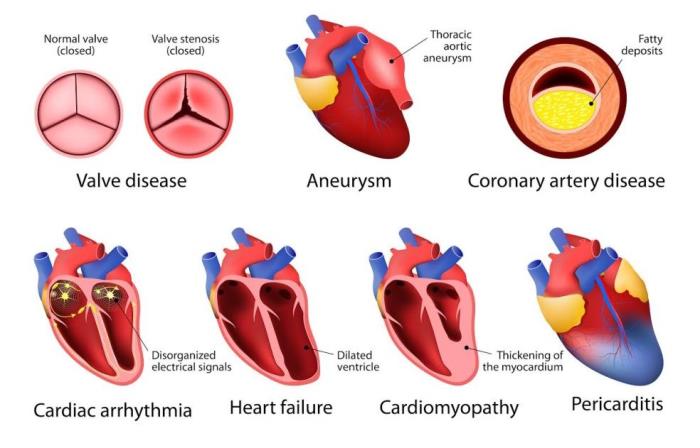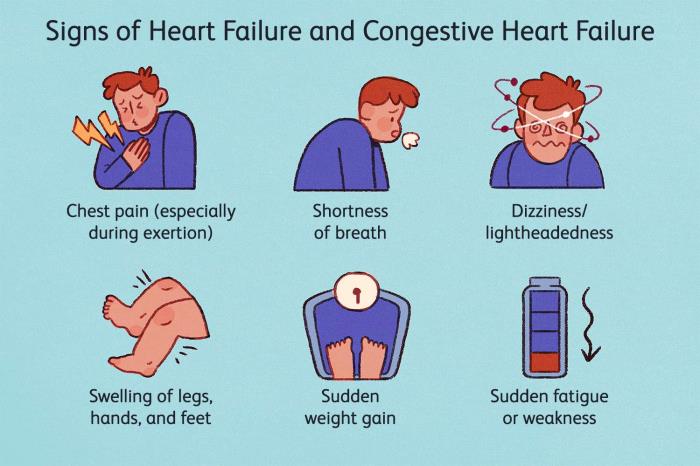Automated Implantable Cardioverter Defibrillator (AICD) surgery is a medical procedure that involves placing a small electronic device inside the body to monitor and regulate abnormal heart rhythms. An AICD continuously checks the heart's rhythm and delivers corrective electrical impulses when necessary to prevent life-threatening arrhythmias. This device plays a critical role in managing patients at high risk for sudden cardiac arrest, often due to severe underlying heart conditions.
Understanding the Role of an Automated Implantable Cardioverter Defibrillator (AICD)
An AICD is designed to detect irregular heartbeats—particularly dangerous rhythms like ventricular fibrillation or ventricular tachycardia—and promptly restore a normal rhythm. When the device identifies a serious arrhythmia, it delivers a shock or rapid pacing to the heart to interrupt the irregular pattern and bring the heart rate back to a safe range. This functionality makes the AICD an essential life-saving tool for patients who may be prone to sudden cardiac events.
Common Heart Conditions Leading to AICD Surgery
AICD surgery is often recommended for patients with certain heart conditions that elevate the risk of sudden cardiac arrest. These include heart failure, a history of heart attacks, and cardiomyopathy, especially when the heart muscle is significantly weakened. Patients who have experienced ventricular arrhythmias or who are genetically predisposed to heart rhythm disorders may also be candidates for AICD implantation. This device is particularly beneficial for those whose medications alone cannot effectively control arrhythmias.

Recognizing Symptoms of Severe Arrhythmias
Arrhythmias can manifest in various ways, from mild to severe symptoms, depending on their impact on blood flow and heart function. Understanding these symptoms is crucial, as severe arrhythmias may lead to life-threatening situations if left untreated. Symptoms can range from minor episodes of palpitations to more alarming signs like dizziness, chest pain, and even sudden unconsciousness. Early recognition and intervention can help prevent serious complications and improve patient outcomes.
Frequent Fainting or Syncope Episodes: When to Seek Help
Frequent episodes of fainting, also known as syncope, can be a red flag for severe arrhythmias and may indicate that the heart is not effectively pumping blood to the brain. Syncope can be triggered by life-threatening arrhythmias and should be promptly evaluated by a medical professional. If fainting occurs multiple times, especially with accompanying symptoms like chest pain or palpitations, seeking medical attention is essential, as it may indicate the need for an AICD to prevent further cardiac events.
Palpitations and Rapid Heartbeat as Warning Signs
Palpitations, or the sensation of a racing or irregular heartbeat, are common symptoms of arrhythmias. A rapid or erratic heartbeat can indicate that the heart’s electrical system is out of sync, which may lead to a life-threatening rhythm. While occasional palpitations are generally harmless, persistent or frequent episodes accompanied by lightheadedness or shortness of breath could signify a more serious condition, warranting evaluation for an AICD.
Chest Pain and Its Connection to Heart Rhythm Disorders
Chest pain is another significant symptom that can indicate the presence of arrhythmias, especially when coupled with other symptoms like palpitations or fainting. While not every instance of chest pain is related to arrhythmias, it’s essential for individuals experiencing recurrent or severe chest pain to seek medical guidance. Chest pain associated with heart rhythm abnormalities may signal a high risk of sudden cardiac arrest, making AICD surgery a potentially life-saving option.
Shortness of Breath and Its Link to Cardiac Issues
Shortness of breath is a common symptom that can indicate underlying cardiac issues, such as heart failure or arrhythmias. It often occurs due to the heart’s inability to pump blood effectively, leading to fluid buildup in the lungs and a sensation of breathlessness. Recognizing this symptom early can be crucial for timely intervention, especially for patients at risk of sudden cardiac arrest (SCA).
Fatigue and Weakness Due to Irregular Heartbeats
Persistent fatigue and weakness may be signs of an irregular heartbeat or arrhythmia, which can prevent adequate blood flow to the body. These symptoms are often overlooked, but in patients with known cardiac conditions, they could indicate the need for an Automated Implantable Cardioverter Defibrillator (AICD) to help manage rhythm irregularities and restore energy levels.

Dizziness and Lightheadedness as Indicators of Arrhythmia
Dizziness and lightheadedness are common indicators of arrhythmias, particularly when blood flow to the brain is compromised. These symptoms can be warning signs of more serious heart conditions and should be evaluated promptly, especially if they persist or are accompanied by other symptoms like chest pain.
Swelling in the Legs and Feet: A Sign of Heart Failure
Swelling in the legs, ankles, or feet, also known as edema, is often related to heart failure and results from fluid buildup due to poor blood circulation. Patients with heart failure and other high-risk cardiac conditions might benefit from AICD implantation to prevent potential arrhythmia-induced events.
High Risk of Sudden Cardiac Arrest (SCA) in Certain Patients
Sudden cardiac arrest (SCA) is a life-threatening event that can occur in patients with specific cardiac conditions, including severe arrhythmias and heart failure. For high-risk patients, an AICD can serve as a preventive measure, continuously monitoring heart rhythms and delivering shocks if dangerous rhythms are detected.
Family History of Sudden Cardiac Death: A Risk Factor
A family history of sudden cardiac death significantly raises an individual’s risk of SCA. For these patients, preventive measures like regular screenings and discussions with a cardiologist are essential. In many cases, an AICD is recommended as a safeguard for patients with a genetic predisposition to heart conditions.
The Role of Ejection Fraction in Deciding AICD Surgery
Ejection fraction (EF) measures the percentage of blood pumped out of the heart with each beat, and a low EF is a common criterion for AICD candidacy. Patients with reduced EF have a higher risk of arrhythmias, making AICD implantation an essential consideration for maintaining heart rhythm stability.
Diagnostic Tests to Assess the Need for AICD
Various diagnostic tests, including echocardiograms, Holter monitoring, and electrophysiological studies, help determine the need for an AICD. These tests evaluate heart rhythm, blood flow, and other indicators of cardiac health, providing critical information on a patient's risk of SCA.
How Persistent Symptoms Affect Quality of Life
Persistent symptoms like fatigue, shortness of breath, and dizziness can severely impact a patient's quality of life. For those who qualify, an AICD can offer peace of mind, as it automatically corrects dangerous heart rhythms, allowing patients to live with fewer worries about sudden cardiac events.
Importance of Early Diagnosis and Symptom Recognition
Early recognition of symptoms and a timely diagnosis are key to reducing the risk of SCA in high-risk patients. Proactive care, including discussions about AICD options, can improve outcomes and enhance quality of life for those with chronic or serious heart conditions.
Patient Experiences: Stories of AICD Intervention Success
Patient success stories highlight the life-saving role of AICDs in preventing SCA. Many individuals report a renewed sense of security after AICD implantation, knowing that their device provides continuous heart monitoring and life-saving shocks if needed.
Long-Term Benefits of AICD for High-Risk Patients
For patients with a high risk of SCA, AICDs offer long-term benefits by providing continuous heart rhythm management and reducing the likelihood of life-threatening events. This device can make a substantial difference in survival rates and overall well-being.
Conclusion: Knowing When AICD Surgery is Needed for Safety
Deciding on AICD surgery is a crucial step for those at risk of SCA. By understanding the symptoms, diagnostic tools, and benefits, patients and healthcare providers can make informed choices that protect heart health and ensure a higher quality of life.
Best AICD Implantation in India
The Best AICD Implantation in India involves placing a small device to monitor heart rhythms and deliver lifesaving shocks if dangerous arrhythmias are detected, ensuring enhanced heart safety for high-risk patients.
Best Aicd Implantation Hospitals in India
The best aicd implantation hospitals in india are equipped with cutting-edge technology and skilled cardiology teams, providing comprehensive care and expertise in cardiac rhythm management.
AICD Implantation Cost in India
The aicd implantation cost in india is competitively priced, making advanced cardiac care accessible with transparent and affordable treatment options.
Best AICD Surgeons in India
The Best AICD Surgeons in India are highly skilled in cardiac device implantation, providing personalized care to help patients manage serious heart conditions effectively.
FAQ
What symptoms suggest the need for an AICD?
Symptoms like shortness of breath, dizziness, fainting, and irregular heartbeats in high-risk patients may suggest the need for an AICD.
Can fainting or dizziness be signs of a serious heart issue?
Yes, fainting and dizziness can indicate heart rhythm issues, particularly in patients with known cardiac conditions. They should be evaluated promptly.
How does a family history of cardiac issues affect AICD candidacy?
A family history of sudden cardiac death or serious heart issues may increase a patient’s risk, making them a candidate for AICD surgery.
What diagnostic tests confirm the need for AICD surgery?
Echocardiograms, Holter monitors, and electrophysiology studies assess heart function and risk of SCA, helping doctors decide on AICD necessity.
How does an AICD help prevent sudden cardiac arrest?
An AICD monitors heart rhythms and delivers a shock to correct dangerous arrhythmias, reducing the risk of sudden cardiac arrest.